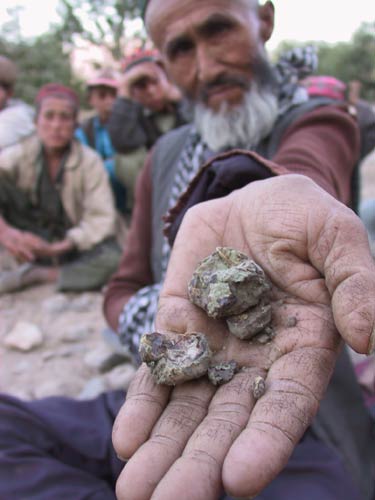

David Seaton's News Links
Here to end the year are some pungent comments from Niall Ferguson on the late Mr. Hussein and some of his former friends. DS



 David Seaton's News Links
David Seaton's News Links David Seaton's News Links
David Seaton's News Links David Seaton's News Links
David Seaton's News Links David Seaton's News Links
David Seaton's News LinksNews Items - BBC - Islamists abandon Somali capital: As they withdrew, gunfire was heard and armed supporters of the city's warlords began taking control of key facilities. Some residents say lawlessness has returned to Mogadishu - which had been under Islamic rule for six months.(...) Residents in the north of the city have reported cars and mobile phones being stolen. Rising insecurity has forced most businesses to stop trading.(...) The situation seems to be descending back into anarchy, our correspondent adds.(...) Courts administering Islamic law restored order in a city bedevilled by anarchy since the overthrow of former President Mohamed Siad Barre in 1991.(...) The UN Security Council has failed for a second time to agree on a statement calling for the withdrawal of Ethiopian and other foreign forces from Somalia.(...) The African Union earlier called for Ethiopia to withdraw, as fighting moved closer to the capital Mogadishu. However, the United States has signalled support for Ethiopia's intervention, with the White House saying Addis Ababa had reason for concern about Somalia's internal security situation.
 David Seaton's News Links
David Seaton's News Links David Seaton's News Links
David Seaton's News Links David Seaton's News Links
David Seaton's News Links David Seaton's News Links
David Seaton's News LinksNews Item - Associated Press: Toyota Motor Corp. on Monday reported its 25th straight month of growth in worldwide production as it closed in on General Motors' position as the world's biggest vehicle maker.(...) Last week, Toyota executives in Japan laid out a production target of 9.42 million vehicles for next year, a 4 percent increase over the 9.04 million vehicles it expects to produce this year and more than the 9.2 million that Detroit-based General Motors Corp. is estimated to have produced this year. GM has not given targets for next year, but has been forced to scale back production after seeing its market share eroded by Toyota and other Asian automakers, which have a reputation for better fuel efficiency.
Deming's 14 Points
1. Create constancy of purpose for improvement of products and service.
2. Adopt a new philosophy: we are in a new economic age.
3. Cease dependence upon inspection as a way to achieve quality.
4. End the practice of awarding business based on price tag.
5. Constantly improve the process of planning, production, and service- this system includes people.
6. Institute training on the job.
7. Institute improved supervision (leadership)
8. Drive out fear.
9. Break down barriers between departments.
10. Eliminate slogans/targets asking for increased productivity without providing methods
11. Eliminate numerical quotas.
12. Remove barriers that stand between workers and their pride of workmanship.
13. Institute programs for education and retraining.
14. Put all emphasis in the company to work to accomplish the transformation.
Seven Deadly Diseases
1. Lack of constancy of purpose to plan a marketable product and service to keep the company in business and provide jobs.
2. Emphasis on short-term profits.
3. Personal evaluation appraisal, by whatever name, for people in management, the effects of which are devastating.
4. Mobility of management; job hopping.
5. Use of visible figures for management, with little or no consideration of figures that are unknown or unknowable.
6. Excessive medical costs.
7. Excessive costs of warranty, fueled by lawyers that work on contingency fees.

 David Seaton's News Links
David Seaton's News Links David Seaton's News Links
David Seaton's News Links David Seaton's News Links
David Seaton's News Links David Seaton's News Links
David Seaton's News LinksOnce I lived a life of a millionaire,
Spent all my money, didn't have any cares.
Took all my friends out for a mighty good time.
Bought bootleg liquor champagne and wine.
Then I began to fall so low,
Lost all my good friends, had nowhere to go.
If I get my hands on a dollar again,
I'll hang on to it 'til that old eagle grins.
'Cause no, no, nobody knows you
When you're down and out.
In your pocket, not one penny,
And as for friends, you don't have any.
When you get back on your feet again,
Everybody wants to be your long lost friend.
I said it straight without any doubt,
Nobody knows you when you're down and out.
"Nobody Knows You When You're Down and Out"
Words & Music by Jimmy Cox (1923) - Recorded by Eric Clapton, 1992
 David Seaton's News Links
David Seaton's News Links"The way you get that compliance out of a thug like Saddam is not by tripling the inspectors, but by tripling the threat that if he does not comply he will be faced with a U.N.-approved war."After no WMD were found he said,
"The stated reason for the war was that Saddam Hussein had developed weapons of mass destruction that posed a long-term threat to America. I never bought this argument… The WMD argument was hyped by George Bush and Tony Blair to try to turn a war of choice into a war of necessity."Finally in August of 2006 he wrote,
AND
"The right reason for this war, as I argued before it started, was to oust Saddam's regime and partner with the Iraqi people to try to implement the Arab Human Development report's prescriptions in the heart of the Arab world. That report said the Arab world is falling off the globe because of a lack of freedom, women's empowerment, and modern education. The right reason for this war was to partner with Arab moderates in a long-term strategy of dehumiliation and redignification."
"Whether for Bush reasons or Arab reasons, democracy is not emerging in Iraq, and we can’t throw more good lives after good lives"His scrambling to maintain some reputation as an analyst and pundit led him to series of statements that have come to be known as the "Friedman Unit", a period of six months, where if his suggestions were followed, everything would turn out fine. Here is a sample of Friedman units ripped from Wikipedia:
"The next six months in Iraq... are the most important six months in U.S. foreign policy in a long, long time" November 30, 2003.
"What we're gonna find out... in the next six to nine months is whether we have liberated a country or uncorked a civil war." October 3, 2004.
"I think we're in the end game now.... I think we're in a six-month window here where it's going to become very clear" September 25, 2005.
"I think the next six months really are going to determine whether this country is going to collapse" December 18, 2005.
"I think that we're going to know after six to nine months whether this project has any chance of succeeding" January 23, 2006
"I think we are in the end game. The next six to nine months are going to tell whether we can produce a decent outcome in Iraq." March 2, 2006
"we're going to find out... in the next year to six months - probably sooner - whether a decent outcome is possible" May 11, 2006.
"our real choices in Iraq are 10 months or 10 years". December 8, 2006America being what it is nowadays Friedman will probably continue to win Pulitzer Prizes. But just in case they wake up in the New York Times one morning and reassign him to writing advice for the lovelorn, don't feel too sorry for him, he shall want for naught. Our Tom is married to the daughter of Matthew Bucksbaum, the chairman of the board for General Growth Properties and one of America's richest men... Tom is only dumb when it comes to international politics. Here are some excerpts from his latest column, where he blames the whole Middle East for making him look so stupid. DS
 David Seaton's News Links
David Seaton's News Links David Seaton's News Links
David Seaton's News Links David Seaton's News Links
David Seaton's News LinksNow, at the beginning of the 21rst century, either humans of the Einstein, Picasso and Lenin mold don't exist any more or, as is more probable, they are simply not needed and not called forth. Today, we have Kleenex-like, disposable, "celebrities" to satisfy our need to worship "great men".
On the contrary, this seems to be an era where, for the first time in history, intelligent, mass opinion can be formed and set into motion without the benefit and shepherding of the "great and the good"; those who have manipulated humanity to their benefit since records have been kept of our affairs. We have just seen a clear example in the Iraq disaster: the most serious and defining crisis of our time, where as Strobe Talbot tells us in the Financial Times, "The US faces in Iraq what could be the most consequential foreign-policy debacle in its history".
At this decisive moment most of America's so called "leaders" either voted or lobbied for the war. And as for the "gatekeepers", the great media groups captained by America's newspaper of reference, the New York Times, actively promoted it. At the very same time, in an unprecedented popular movement, millions of people in America and around the world demonstrated against the war and organized to oppose it and haven't ceased organizing, blogging and agitating online against it since the very day it began. Obviously if the "people" had been listened to, an unprecedented disaster could have been averted.
The insight would be, that after decades of nearly universal literacy and public education, the general public with the new technologies at its command, is perfectly able to decide the major issues of the day more correctly than its "leaders," who instead of stewarding the general welfare are for the most part responding to the cocktail of special interest groups whose large contributions finance their campaigns. What we have just lived through in the first years of the new century seems to bear out the theories of "deliberative democracy", Which in Wikipedia's article on the subject is defined as,
"Any system of political decisions based on some tradeoff of consensus decision making and representative democracy. In contrast to the traditional economics-based theory of democracy, which emphasizes voting as the central institution in democracy, deliberative democracy theorists argue that legitimate lawmaking can only arise from the public deliberation of the citizenry."I seem to remember that somewhere Noam Chomsky said that if Americans studied public affairs with the attention and sophisticated powers of analysis that they expend on baseball statistics, it would change the world. Perhaps we are looking at the beginning of that now. Substitute "soccer" for "baseball" and it could apply to the rest of the world.
The only major US politician that seems to have acted decisively on this insight is Howard Dean, the chairman of the Democratic Party. Dean (or someone very near him) seems to have read and understood the Hardt and Negri concept of the "Multitude" (no mean feat as the authors can't write their way out of a paper bag). This "multitude" (Hardt-Negri's definition) "is our era's new political class, a fungible mass of political force, which in contrast to the 'proletariat' or working-class, is 'a collection of singularities" who discover what they have in common, but without fusing into some sort of sovereign unity'.
Howard Dean, alone among mainstream politicians, seems to understand the potential of opening political life to this "multitude" by giving them the chance to take their own political fate directly into their hands.
If this sounds a little esoteric to you, consider this simple arithmetic: there are an estimated 40,000,000 Americans without any health coverage... if each of them donated only 50 cents through the Internet to the Democratic Party's "war chest," that would make $20,000,000. By thus short-circuiting of the traditional "big wallet," special interest contributors, the realistic possibility for a new, high-tech populism opens.
The moral of the story? Before they figure out how to shut the Internet down, let us hurry and change the world. DS
You -- Yes, You -- Are TIME's Person of the Year David Seaton's News Links
David Seaton's News Links